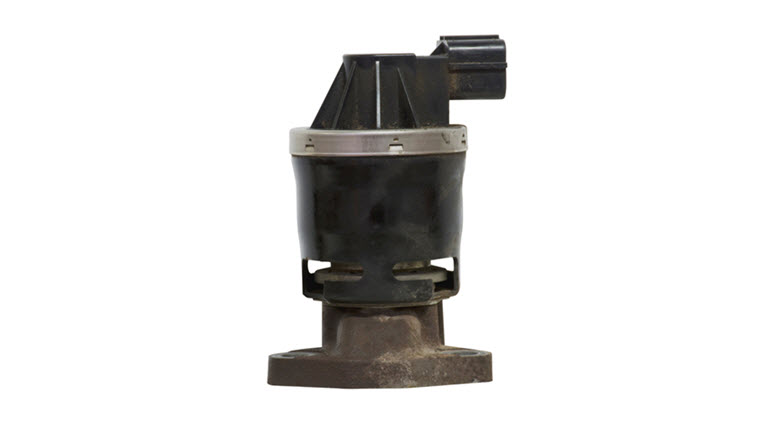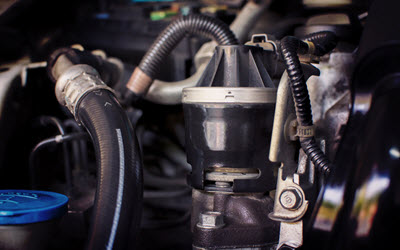How Often Should You Replace the EGR Valve in Your Audi?

With the increased pressure to reduce emissions and make more fuel-efficient cars, the exhaust gas recirculation valve was born. The EGR valve is standard on all modern vehicles, and a failing one can greatly impact your Audi’s operation. We will look deeply into how the EGR valve functions, how often you should replace the EGR valve in your Audi, and signs to look for if it begins to fail.
How an EGR Valve Works
Now that we know why the EGR valve came about, let’s discuss how it performs its designed function.
One way the EGR saves gas is to reroute some of the unused fuel gas back into the engine to reuse what can be before routing out of your car completely.
It also reduces harmful gases in the environment. By returning gases back into your Audi’s engine, the EGR valve causes a chemical reaction in the intake system that burns changes the gas to a less harmful form.
When to Replace Your EGR Valve
Audi recommends you replace your EGR valve every 50,000 miles. Having it changed with this frequency will help prevent total failure when operating your car. Other factors can reduce the lifespan of your Audi’s EGR valve. Let’s take a look at signs of premature failure to know even before the 50,000-mile mark to keep your car running as it should.
- Increased fuel use: If the EGR valve on your car malfunctions, it causes your Audi to use much more fuel than it needs to operate. The car’s computer system notices when your car needs extra fuel and gives the signal to add more. What it doesn’t realize yet, there is a problem causing it.
- Check engine light: When the computer finally realizes there is an issue with your EGR valve, it will make the check engine light illuminate a problem.
- Engine knock: A bad EGR valve will not allow the byproducts of nitrogen gas to transform into less harmful gases. These more harmful gases will cause a knocking sound in your engine.
- Poor performance: Without the EGR valve working correctly, your Audi will have poor performance during acceleration and normal highway driving.
Reasons for EGR Valve Failure
An EGR valve usually fails due to dirt and grime building up within it. It’s not uncommon to have some carbon buildup over time, but excessive buildup has a reason behind it. Here are a few examples of why impurities buildup inside an EGR valve.
- Bad or no air filter: Your Audi uses air pushed into it to perform well. What is not needed are all of the pollutants that come with it. An air filter is designed to keep these impurities When a cheap or damaged filter is used, it will allow the air elements to pass through. When they do, they find their way into your EGR valve.
- Intake leaks: The intake system that your filter services also causes issues if leaking. The system needs to be sealed to allow all air to pass through the filter. If there are any leaks behind the air filter, it will allow debris to bypass.
- Vacuum leaks: Vacuum leaks will work the same ways as a leaky intake system by allowing air to bypass the filter.
Changing the EGR Valve
The environmental exhaust system on your Audi and most cars can be expensive to replace. On the other hand, an EGR valve replacement is not very costly. If someone who has little experience with Audi technology attempts the repair, they can cause more damage to the full exhaust system.
Only ASE certified technicians with the Audi engine’s experience need to complete the repair work. Make sure the company also has the right equipment to properly diagnose your EGR valve problem to make sure the repair was necessary in the first place.
Bring Your Audi to Munich West
If you suspect your Audi has an issue with  the EGR valve or any other problem, bring it to Munich West, servicing Decatur and Atlanta, GA. Our certified technicians at Georgia’s finest European auto repair shop have the training and experience to troubleshoot and repair your Audi’s exhaust issues. Contact us to bring in your Audi or other quality vehicles for servicing.
the EGR valve or any other problem, bring it to Munich West, servicing Decatur and Atlanta, GA. Our certified technicians at Georgia’s finest European auto repair shop have the training and experience to troubleshoot and repair your Audi’s exhaust issues. Contact us to bring in your Audi or other quality vehicles for servicing.




